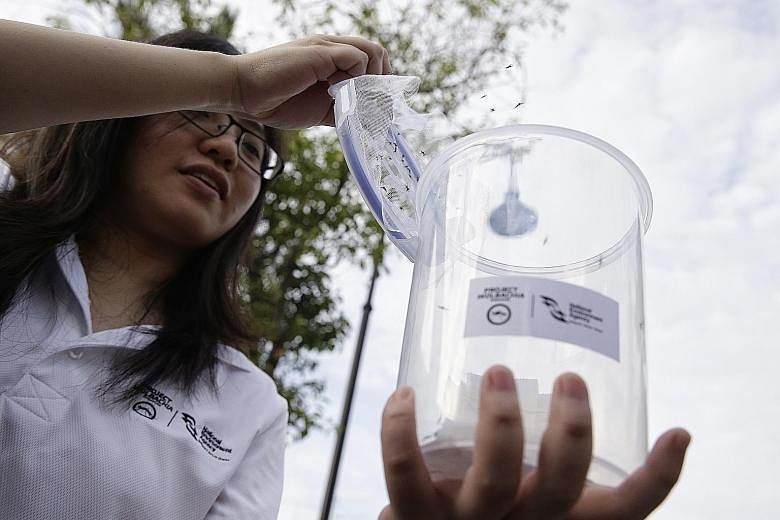When dengue infections spiked in the first few weeks of this year, experts predicted that Singapore might end the year with more than 30,000 cases of the disease.
But the latest figures indicate that as 2016 draws to a close, the annual total will instead be about a third of that number, at around 13,000 cases.
The difference could have been that the authorities went all out to eradicate the mosquitoes responsible for spreading the disease, including deploying more traps and stepping up inspections.
The National Environment Agency (NEA) launched its annual Mozzie Wipeout Campaign early to tackle the sharply rising numbers at the start of the year.
The campaign, usually held around April, was brought forward to the end of February.
Between January and September, NEA officers found and destroyed 13,000 breeding spots, half of which were in homes.
-
30k
Experts' projected number of dengue cases in 2016
13k
Approximate number of dengue cases this year
The agency also clamped down on households where mosquito breeding spots were detected. It imposed fines on anyone who was found to be breeding mosquitoes at home, not just those who lived in dengue clusters.
The Zika scare, which led to Singaporeans going into overdrive to stamp out mosquitoes, may also have contributed to the lower-than-expected dengue numbers.
This year also marked a milestone for other dengue-related research, such as the world's first dengue vaccine, which was given the green light by the Health Sciences Authority in October.
Called Dengvaxia, it works best in people who have had dengue before, and is less effective against the two strains that are most common here.
That month, the NEA also started the first of three mosquito control trials. It released male Aedes aegypti mosquitoes carrying Wolbachia bacteria at the Braddell Heights estate.
When these mosquitoes mate with regular mosquitoes, the bacteria will cause the females to produce eggs that do not hatch.
Over time, this could lead to a drop in the number of Aedes aegypti mosquitoes which carry diseases such as dengue, Zika and chikungunya.
Linette Lai

